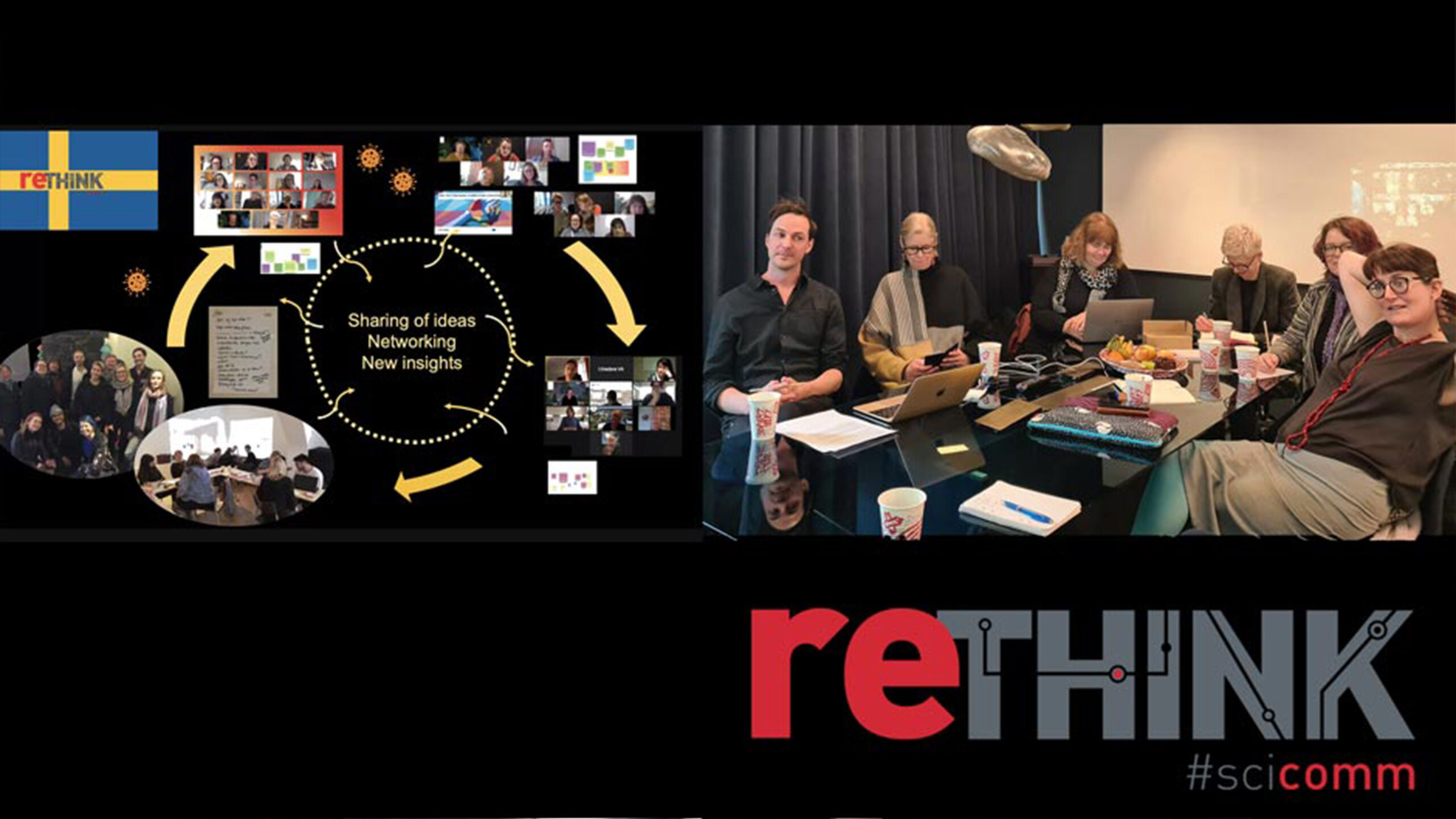How can science communication be better adapted to the conditions of today? This is something that has been investigated as part of the EU RETHINK project, in which VA was responsible for the Swedish hub. The project, which has now come to an end after three years, has produced a range of resources and recommendations to strengthen science communication across Europe.
At the start of the project, so-called “Rethinkerspaces” were set up in seven European countries consisting of people either working in, or supporting, science communication. The groups acted as meeting places and testbeds for discussions about science communication. Similar meetings took place across Europe and have been an important source of information during the project.
“Ensuring that evidence-based knowledge has an impact on decision-makers and comes to use is, in the long run, a question of democracy. By bringing together science communicators and researchers, we have been able to use both groups’ expertise to ’rethink’ ways in which we can communicate research more effectively,” said Anna Maria Fleetwood, Senior Advisor, External Relations at the Swedish Research Council and a member of Sweden’s Rethinkerspace.
Rethink’s starting point has been two major recent developments:
- The transition to a digital communication landscape where information flows more rapidly and via significantly more channels than previously.
- The movement towards open science with blurring boundaries between research and society.
“The Covid-19 pandemic broke out in the middle of the project and became a prime example of the difficulties of communicating research when there is flood of information and many different interpretations of the same data,” commented Gustav Bohlin, a researcher at VA (Public & Science) and the project manager for Rethink.
In order to better understand how these challenges are affecting how science communication is carried out today, the project has, among other things, studied the science communication landscape. Who is communicating what to whom? What form does the communication take and what is its purpose? The findings show that science communication is carried out by many different types of actors in many different ways, and varies both between countries and depending on the issue being addressed. Science communication is conducted using a variety of platforms and different formats. The project has subsequently developed an interactive SciComm framework that illustrates the different channels that are used to communicate different issues.
Another project theme has been how people make sense of complex issues based upon scientific knowledge, such as the corona pandemic. Interviews with citizens of seven European countries show that our opinion forming about Covid-19 is not explained by which facts we have access to, but largely depends on our personal situation (our social contacts, personal experiences or worldview) through which we interpret the information.
The project has also explored different roles and repertoires that researchers and communicators can adopt to reach different groups or achieve different goals, as well as which incentive structures facilitate or hinder communication. For science communication practitioners, Rethink has created a best practice guide based on six virtues. Rethink has also developed a training navigator consisting of useful tools and training resources and courses on science communication.
Twenty concrete recommendations aimed at decision-makers, universities/research institutions and science communicators.
In a debate article in the Swedish magazine Curie, (in Swedish only), VA (Public & Science) highlights three recommendations that are particularly relevant to Sweden:
- Review the reward and evaluation structures for research. The time and effort that researchers put into engaging with society must be rewarded and recognised as important work.
- Establish a national resource centre for science communication. This could develop and offer training courses, continuing professional development and guidelines for researchers. The centre could also provide evidence-based support and tools for researchers and science communicators, as well as disseminate the latest knowledge in the field, and;
- Support organisations that work with dialogue-based science communication. This promotes diversity and more inclusive science communication in the future.
Some of the findings of the Rethink project are summarised in three short films that you can watch on Youtube, either in the video above or via the links below.
- Assessing quality of science communication online
- How to reach underserved audiences
- Making sense in Science Communication

